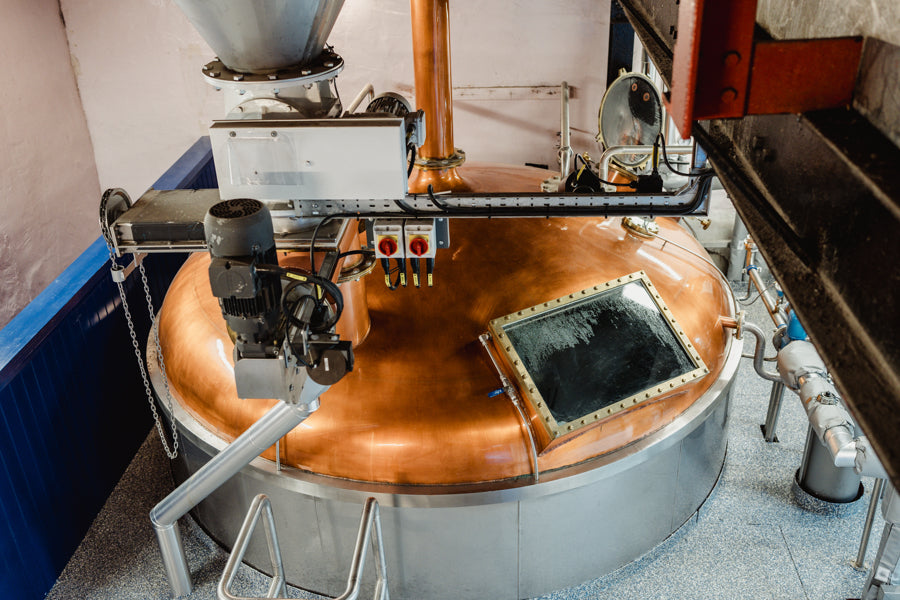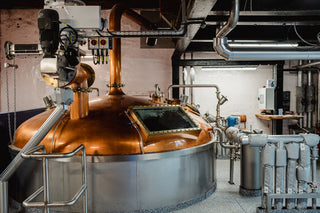As distillers, taking a longer view is something that we have practiced for generations. We understand the importance of evolving our processes to make them more efficient whilst retaining our traditional values and our ‘By Hand and Heart’ ethos.
In 2019 we embarked on a project that looked at our entire production process and ways in which we could save energy, water, and reduce waste whilst retaining our fully manual operation and spirit quality. Reviewing the design of our process allowed us to identify several opportunities to make sustainable changes to our whisky-making.
We performed yeast trials, analysed distillation runs, and mapped esters in our spirit for many months as part of our review and to ensure that we retained notable and important characteristics that form our distillery footprint following the planned improvements.
On the 31st of January 2022, following years of preparation, work began on the distillery’s sustainable upgrades, the most significant works to take place at The Glenturret in over 30 years of single malt production.
Following an initial investment of £1.4m and a production shutdown of 5 months, commissioning of the new upgrades began on the 27th of June 2022 with no waste being sent to landfill during the project.
The Mash House

Our process review identified that although our previous Mash Tun was efficient in extracting sugars, it was recognised that its manual design had several limiting factors.
The process was far from energy efficient. It required high volumes of water and created unnecessarily high levels of waste. Mashing was incredibly labour-intensive for our team, and it also limited our ability to process certain types of malt. With this in mind, the decision was made to replace our Mash Tun and Heat Exchanger.
Our new semi lauter Mash Tun now has a capacity of 1.95 Tonnes and as we recognise the skills and experience of our team to be our most important asset, we have worked closely with our designers to ensure that our operators continue to have full control over all of the mashing stages.
Since commissioning began, we have recorded a 28% reduction in process water usage which equates to 1,000,000 litres of water saved per year.
The new Mash Tun has also reduced process waste by 1,000 tonnes per year. The changes to our Mash House have importantly allowed us to utilise our Tun Room to its maximum potential and to run more efficiently. We now fill each of our washbacks with an extra 25% volume at an increase of 53.8% litres of alcohol per washback.
The Still House
We recognise that distilling is a very energy intensive area of our production, and we subsequently spent a lot of time in our review process looking at ways in which we could make this area more efficient and reduce our energy consumption. In order to achieve this, we made changes to our process in two areas.
Firstly, we identified that the 40 years old design of the heating systems within both our stills could be vastly improved with simple, efficient, easy to clean radiators that would deliver much larger surface area giving a quick and consistent transfer of heat.
Secondly, we developed a preheating system for our Wash Still, the first of our two distillations, that would use the heat from the waste of previous distillations to preheat the wash before it is distilled. Our first distillation requires us to heat the wash to over 90°C. Before installing preheating, the starting temperature of our wash would typically be around 25°C.
With preheating now in place, we can achieve a starting wash temperature of above 75°C meaning that we have much less heating required to achieve over 90°C and we have subsequently reduced our heating time requirements by 30 minutes for every Wash Still distillation.
The preheating and internal heating system upgrades in addition to the Mash House improvements have played an integral part in reducing overall annual production energy usage by 27%.


